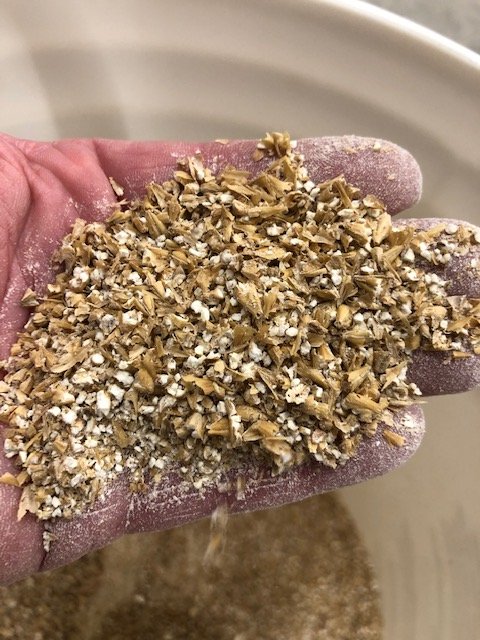- Joined
- Sep 10, 2019
- Messages
- 53
- Reaction score
- 56
Yesterday was my first ever BIAB. I was like a kid on Christmas...I used my new grain mill(3 roller Malt Muncher), new electric system (Wort Hog EBC-130 with 15g BK), and already transferred to my new conical (Spike CF5). I made a Munich Helles and did my calculations off of Brewers Friend. Here are my questions:
1. Water volume was 8.39 gallons and mash (#10.5 grain bill. I did not sparge - only stirring occasionally) for 1 hr at 148*. I hit those numbers dead on! I did squeeze the bag. After mashing, my volume was still over 8 gallons. Recipe said I should have had a volume loss. I didn't really notice one. I do have a recirculating lid and pump but did not use them. Wanted to keep this first attempt as simple as possible. Is it common to not have a water volume loss after mashing? Should I mash with full volume of water?
2. Pre-boil OG was 1.042. Post boil w/hops (2oz total) OG was 1.050. Goal was 1.047 I guess that is good, correct? Is it common that the gravity increase post boil?
3. I used Wilser bags for the grains and hops. I used their pulley system to hoist the basket and bag. That worked great! IMO I had a lot of "gunk" in the bottom of my BK. Could this be from squeezing the bag? I moved the basket and bag out of the way before the boil. Should I have just let it hang there during the entire boil?
4. Post boil (1 hour boil time) wort was under 6 gallons by the markings on my BK. The recipe was to put 5.5 gallons into the fermenter. I struggled to get to 5 gallons without tilting my BK and putting way more "gunk" into the fermenter. With brewing with electric, is it common to have my "boil-off" than using propane?
5. I pitched 2 packets of Saflager 34/70 at about 10 pm last night and at 6am this morning it was already starting to bubble (coming out of the blow-off tube) in the Star San.
Lots of questions above that I am hoping will help my future BIAB's. Overall, I I consider my first BIAB a success. My process needs tweaking and with your help, I can improve.
1. Water volume was 8.39 gallons and mash (#10.5 grain bill. I did not sparge - only stirring occasionally) for 1 hr at 148*. I hit those numbers dead on! I did squeeze the bag. After mashing, my volume was still over 8 gallons. Recipe said I should have had a volume loss. I didn't really notice one. I do have a recirculating lid and pump but did not use them. Wanted to keep this first attempt as simple as possible. Is it common to not have a water volume loss after mashing? Should I mash with full volume of water?
2. Pre-boil OG was 1.042. Post boil w/hops (2oz total) OG was 1.050. Goal was 1.047 I guess that is good, correct? Is it common that the gravity increase post boil?
3. I used Wilser bags for the grains and hops. I used their pulley system to hoist the basket and bag. That worked great! IMO I had a lot of "gunk" in the bottom of my BK. Could this be from squeezing the bag? I moved the basket and bag out of the way before the boil. Should I have just let it hang there during the entire boil?
4. Post boil (1 hour boil time) wort was under 6 gallons by the markings on my BK. The recipe was to put 5.5 gallons into the fermenter. I struggled to get to 5 gallons without tilting my BK and putting way more "gunk" into the fermenter. With brewing with electric, is it common to have my "boil-off" than using propane?
5. I pitched 2 packets of Saflager 34/70 at about 10 pm last night and at 6am this morning it was already starting to bubble (coming out of the blow-off tube) in the Star San.
Lots of questions above that I am hoping will help my future BIAB's. Overall, I I consider my first BIAB a success. My process needs tweaking and with your help, I can improve.








![Craft A Brew - Safale S-04 Dry Yeast - Fermentis - English Ale Dry Yeast - For English and American Ales and Hard Apple Ciders - Ingredients for Home Brewing - Beer Making Supplies - [1 Pack]](https://m.media-amazon.com/images/I/41fVGNh6JfL._SL500_.jpg)



















































